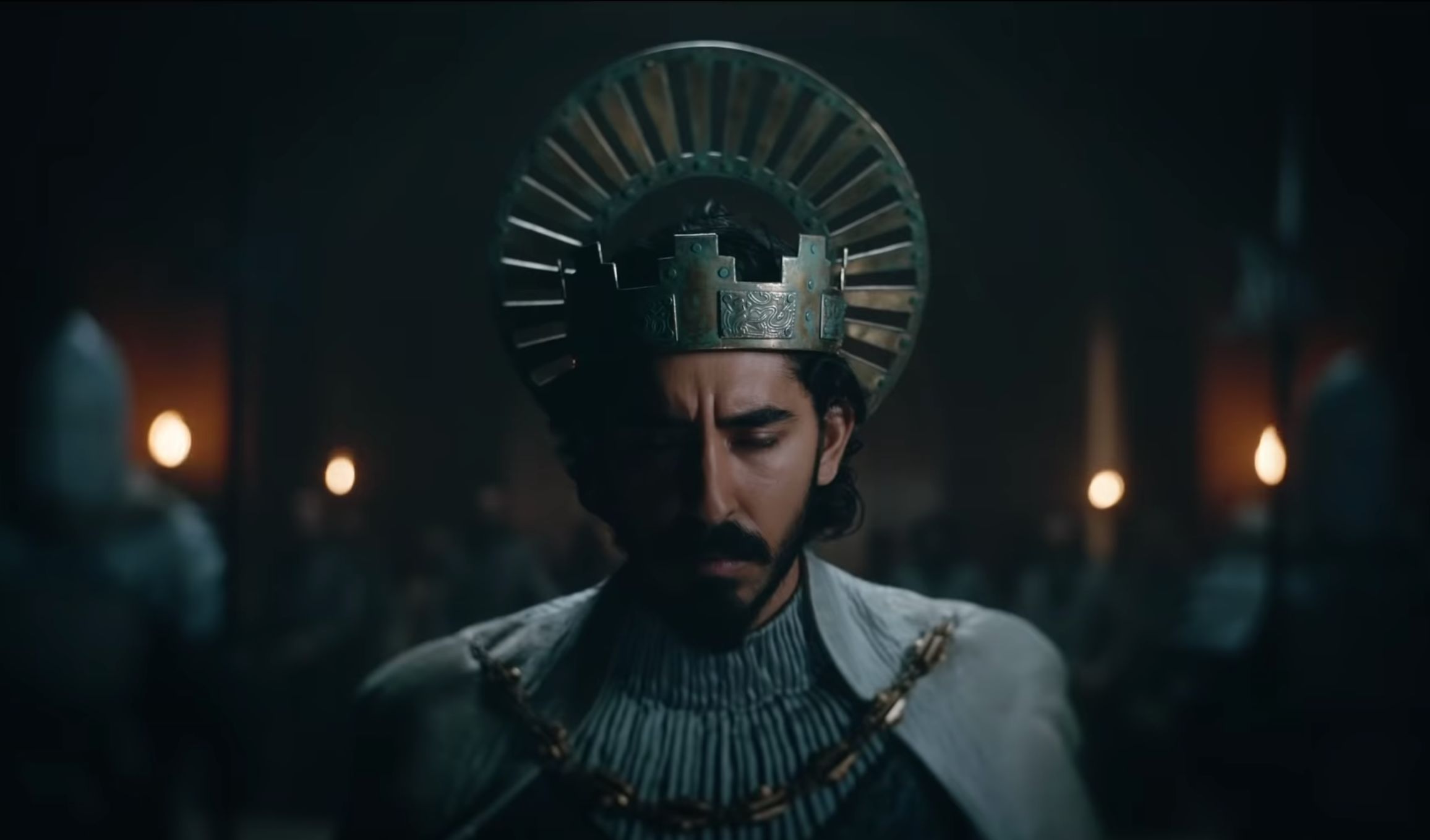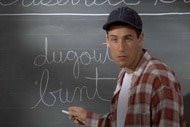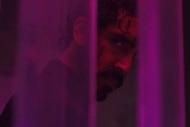Create a free profile to get unlimited access to exclusive videos, sweepstakes, and more!
The Green Knight is the next great fantasy masterpiece

Near the end of The Green Knight, David Lowery's ambitious, immersive new fantasy film based on the chivalric romance Sir Gawain and The Green Knight, the embattled Gawain (Dev Patel) is sharing his experiences thus far with another character. I won't name that character here, nor will I expound on the circumstances of their meeting, for fear of spoiling too much of Lowery's dark, sensuous journey. What I will do, though, is recount a line spoken in this scene that, for me, encapsulated the film's core appeal at this point in my moviegoing life.
"This world is fit for all manner of mysteries."
Like the legendary anonymous poem that inspired it, The Green Knight is full of memorable lines like this, spoken by Gawain, by his uncle King Arthur, by a half dozen other core characters, and for you, it might be another of those lines that carries the most meaning. Or it might be none of them, as your brain may instead carry a singular image or a series of images out of the theater instead as the greatest token gleaned from this chivalric game.
That is, at least for me, the point.
The tale of Sir Gawain and the Green Knight is roughly 600 years old, and yet somehow Lowery's film — dense with visual meaning and crackling with Patel's boundless, soulful energy — arrives not a moment too soon in the modern fantasy landscape, proving the timelessness of his source material yet again. At a time when genre storytelling has reached new heights of continuity-laden detail, and we're surrounded by fictional worlds that thrive on constant over-explanation, The Green Knight is brave enough to lay all manner of mysteries at our feet and simply ask us to reckon with them. For this reason, and many, many others, it is the next great film in the modern fantasy canon, one we should be talking about for decades to come.
While the film keeps the framework of the classic poem and the yearlong game that transpires between its title characters, much of its strength is derived from the ways in which Lowery, Patel, and their cast and crewmates reinterpret and enrich the source material. Lowery not only plays up Gawain's youthful carelessness, but contrasts it with the trappings of an aging Camelot, punctuated by Knights of the Round Table with long gray beards and an Arthur (Sean Harris) who can barely lift his legendary sword. Through the women surrounding Gawain, among them Guinevere (Kate Dickie) and Morgan Le Fay (Sarita Choudhury), the film strikes an intriguing balance between Christian and Pagan, magic and prayer, asking us to consider which might be stronger while also wondering if they might be one and the same. And, most notably, the poem's brief allusions to Gawain's many struggles on the long road to the knight's Green Chapel are greatly expanded, laying down a path upon which the young would-be knight could find anything from ghosts to bandits to giants stalking the valleys.
The less said about the details of these expansions, the better, but it's here that the film really earns its place among the great 21st-century fantasy movies. As Gawain moves through a landscape that feels equal parts enchanted and cursed, he's forced to reckon all over again with the driving force of his quest, what he really wants from it, what he really hopes the end result will be. It becomes a fixation not just of the character, but of the camera, the script, and the audience. Gawain's obsession becomes ours, and yet even as we watch him, even as we root for him, we're left to wonder if any of it is what we really want, if it's really worth it. It's a fascination that Lowery himself described in a foreword to a new edition of the poem, published in conjunction with the film, saying the stakes of the game were "as bewildering to me as they were beguiling."
"That Sir Gawain would willingly hold himself to the terms set by this mystical knight, that he might spend an entire year waiting to embark upon an adventure that could only end in death, implied an entirely different standard by which to measure a quest (and, indeed, a life) than a traditional hero's journey might prescribe," Lowery writes.
Of all the things Lowery preserves, highlights, and heightens over the course of his adaptation, it's this combination of bewildering and beguiling stakes — "all manner of mysteries," you might say — that stands out the most. Characters wonder aloud not just what purposes Gawain hopes to serve by undertaking his quest, but also what exactly the Green Knight himself (Ralph Ineson) is and represents. Is he growth, nature, the renewal of life after a long winter? Or is he death, rot, the ability of the natural world to swallow up all our achievements in the end, no matter how great our deeds?
There are, along the way, answers to these questions and more, particularly as Gawain himself must reckon with that final encounter with the title menace. It's not The Green Knight's preservation of every single mystery that makes it a masterpiece, but the mysteries it elects to carry along the way. It's easy to imagine a version of this movie in which a screenwriter deemed Gawain the ultimate savior of Camelot, who must take the great sword Excalibur into the woods, fighting the forces of evil along the way, in order to face a great showdown with the Big Bad in the grand finale. It's also easy to imagine an expanded universe that tells us not just why Gawain is the one who must do this, but what each of the other knights thinks about it, what they do while he's gone, and how it all fits into the larger picture of Arthurian continuity. After all, it wasn't too many years ago that a King Arthur Shared Universe was an actual Hollywood prospect, so why not try that? Why not make the most famous throne in literature into the next Game of Thrones?
The Green Knight isn't interested in these things, this tenuous connective tissue that often adds meaning to stories but just as often only adds the illusion of it. This film doesn't need you to know what Arthur was doing right before the story started or what he'll do after it. It doesn't even necessarily need you to know that it's Arthur. Nor does it need to tell you where each of the strange encounters Gawain meets along his way or originated, or why they came to be in those places, or what they really want. Instead, it trusts the dreamy, fairy tale logic of chivalric romance to point itself in the right emotional direction, and leaves the rest in the capable hands of its captivating star. In a time when fantasy stories often take a "the bigger, the better" approach, this is a film bold enough to step out into the dark on its own, and sound a life-affirming bellow across the countryside without explanation or justification.
Because the world is fit for all manner of mysteries, and sometimes the best fantasy stories are the ones that simply remind us how true that is.
The Green Knight opens in theaters on Friday.













